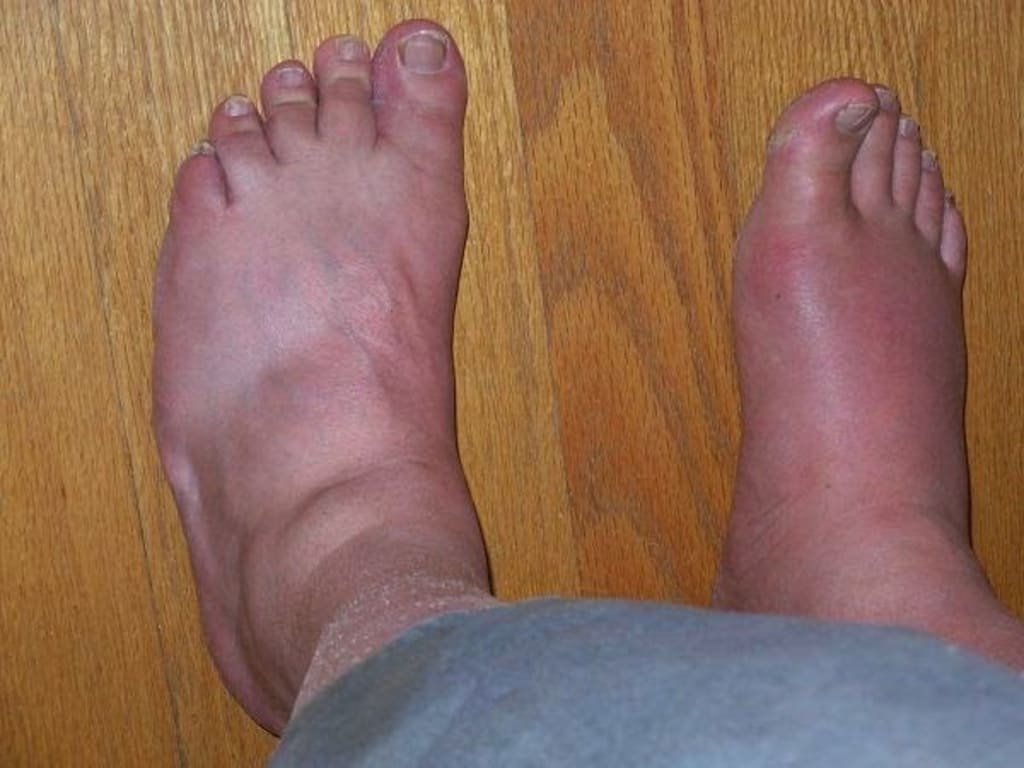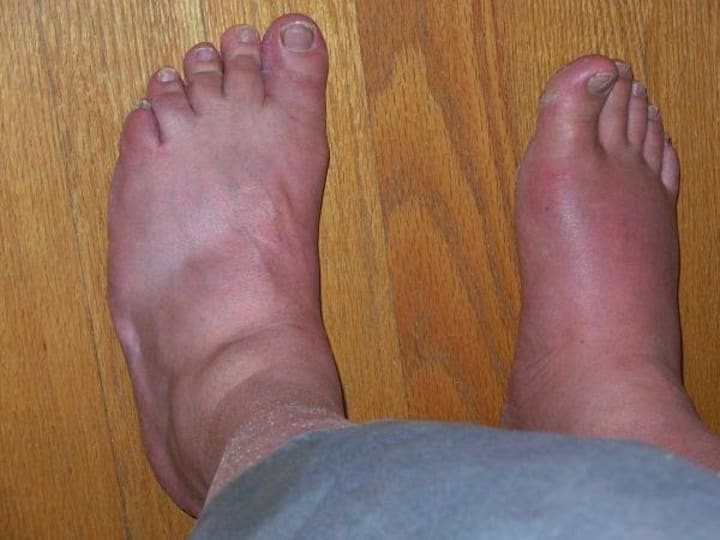10 symptoms of kidney failure
Many people have chronic kidney disease and don’t know it, because the early signs can be subtle. It can take many years for chronic kidney disease (CKD) to progress to kidney failure. Some people with chronic kidney disease live their entire lives without ever developing kidney failure.

However, for many people at any stage of kidney disease, understanding it is best. Knowing the signs of kidney disease can help you get the best treatment . If you or someone you know has one or more of the following kidney disease symptoms, or if you are concerned that you have a problem with your kidneys, see your doctor for blood and urine tests. Remember, many symptoms may not be caused by kidney disease. But the only way to know the cause of your symptoms is to see your doctor.

1. Changes in urination
The kidneys make urine, so when the kidneys are damaged, changes to urine can occur , such as:
You may have to wake up at night to urinate.
Foamy or bubbly urine. You may urinate more often than usual, or pass more urine than usual, and your urine may be pale in color.
You urinate less often than usual, or pass less urine than usual, or your urine is dark in color.
Your urine may contain blood.
You may feel pressure or have difficulty urinating.
Here is the patient's description:
“When you go to the bathroom more, you can't pee all the way. And then you still feel like this tension going down there, it's really tight.”
“The first thing I noticed was urine. Then I went to the bathroom more often and when I got there, I couldn’t pee. You think you need to pee, but when you get there: two or three drops.”
“I was peeing blood. It was very dark, like the color of grapes. And when I went to the hospital, they thought I was lying about the color of my urine.”
2. Edema
Damaged kidneys no longer remove excess fluid, so fluid builds up in your body, causing swelling in your legs, ankles, feet, face, and hands.
Patient description
“I remember my ankles were so swollen. They were so big that I couldn't wear shoes anymore.”
“With my sister, her hair started falling out, she lost weight, but her face was really puffed up, you know everything was like that until she found out she had the disease.”
“I went to work one morning and my ankle was swollen, really swollen, and I was really, really tired walking to the bus stop. And that's when I knew I had to see a doctor.”
3. Fatigue
Healthy kidneys make a hormone called erythropoietin (pronounced a-rith'-ro-po'-uh-tin), which tells the body to make oxygen-carrying red blood cells.
When your kidneys fail, they make less erythropoietin. As a result, your body has fewer red blood cells to carry oxygen, so your muscles and brain tire more quickly . This condition is called anemia. And it can be treated.
Patient description
“I suddenly felt exhausted and had no consciousness left.”
“I slept a lot. I came home from work and went straight to bed.”
“It's like you're extremely tired all the time. Tired, and your health just drains away even when you're not doing anything.”
4. Itching/skin rash
Your kidneys remove waste products from your blood. When your kidneys fail, the buildup of these waste products in your blood can cause severe itching.
Patient description:
“It wasn’t just a skin itch, it was a bone itch. I had to dig into my skin with a brush. My back was bleeding from scratching so much.”
“My skin was torn. I was very itchy and scratched a lot.”

5. Metallic taste in mouth/ammonia breath
A buildup of waste products in the blood (called uremia) can make food taste different and cause bad breath. You may also notice that you don't like eating meat anymore, or that you lose weight because you don't feel like eating.
Patient description
“You will feel a bad taste in your mouth, almost like you have just swallowed iron.”
“You don't have the same appetite as you used to.”
“Before I started dialysis, I had lost about 10 pounds.”
6. Nausea and vomiting
Severe buildup of waste products in the blood (uremia) can also cause nausea and vomiting. Loss of appetite can lead to weight loss.
Patient description
“I had a lot of itching, and I was vomiting, throwing up everything. I couldn't keep any food or drink down.”
“When I was vomiting, I couldn't eat, and I had a hard time taking my blood pressure medication.”
7. Shallow breathing
Your shortness of breath can be related to your kidneys in two ways: first, excess fluid in your body builds up in your lungs. And second, anemia (a lack of oxygen-carrying red blood cells) can starve your body of oxygen and cause shallow breathing.
Patient description
“When I have shallow breathing, it scares me. I think maybe I might fall or something might happen to me, so I usually go find a place to sit for a while.”
“I couldn't sleep at night, I couldn't breathe, it was like I was drowning. And, I couldn't walk anymore. It was so bad.”
“You go upstairs to clean your room and then you can't breathe anymore, or when you work you get tired and you have to stop working.”
9. Feeling cold
Anemia can make you feel cold all the time, even when you're in a warm room.
Patient description:
“I noticed that sometimes, when I was really cold, I had shivers.”
“Sometimes I get really, really cold. It can be hot, and I'm still cold.”
9. Dizziness and loss of concentration
Anemia related to kidney failure means your brain is no longer getting enough oxygen. This can lead to memory problems, loss of concentration, dizziness, and lightheadedness.
Patient description:
“I remember mentioning to my wife about my memory that I couldn't remember what I had done last week, or maybe two days ago. I couldn't really concentrate, because I like to do crossword puzzles and read a lot, but I couldn't concentrate.”
“I was always tired and dizzy.”
“It got so bad that I was working, and all of a sudden I got dizzy. So I thought maybe my blood pressure or my diabetes got worse. That's what I thought.”
10. Leg/side pain
Some people with kidney disease may experience pain in the back or flank as the kidneys are affected. Polycystic kidney disease, which can cause fluid-filled cysts to enlarge in the kidneys, and sometimes the liver, can also cause pain.
Patient description
“About 2 years ago, I was always going to the toilet, and my lower back was always in pain, I wondered why that was happening… the doctors diagnosed it as kidney problems.”
“And then you wake up in the night, and you have pain in your side and back, and you can't move.”
“At night, I often have pain in my ribs. It's worse than the pain from heavy work.”
About the Creator
Ken Daklak
Telling stories my heart needs to tell <3 life is a journey, not a competition
If you like what you read, feel free to leave a tip,I would love some feedback
https://s.shopee.vn/pa9mXcwE?share_channel_code=8
Enjoyed the story? Support the Creator.
Subscribe for free to receive all their stories in your feed. You could also pledge your support or give them a one-off tip, letting them know you appreciate their work.






Comments
There are no comments for this story
Be the first to respond and start the conversation.